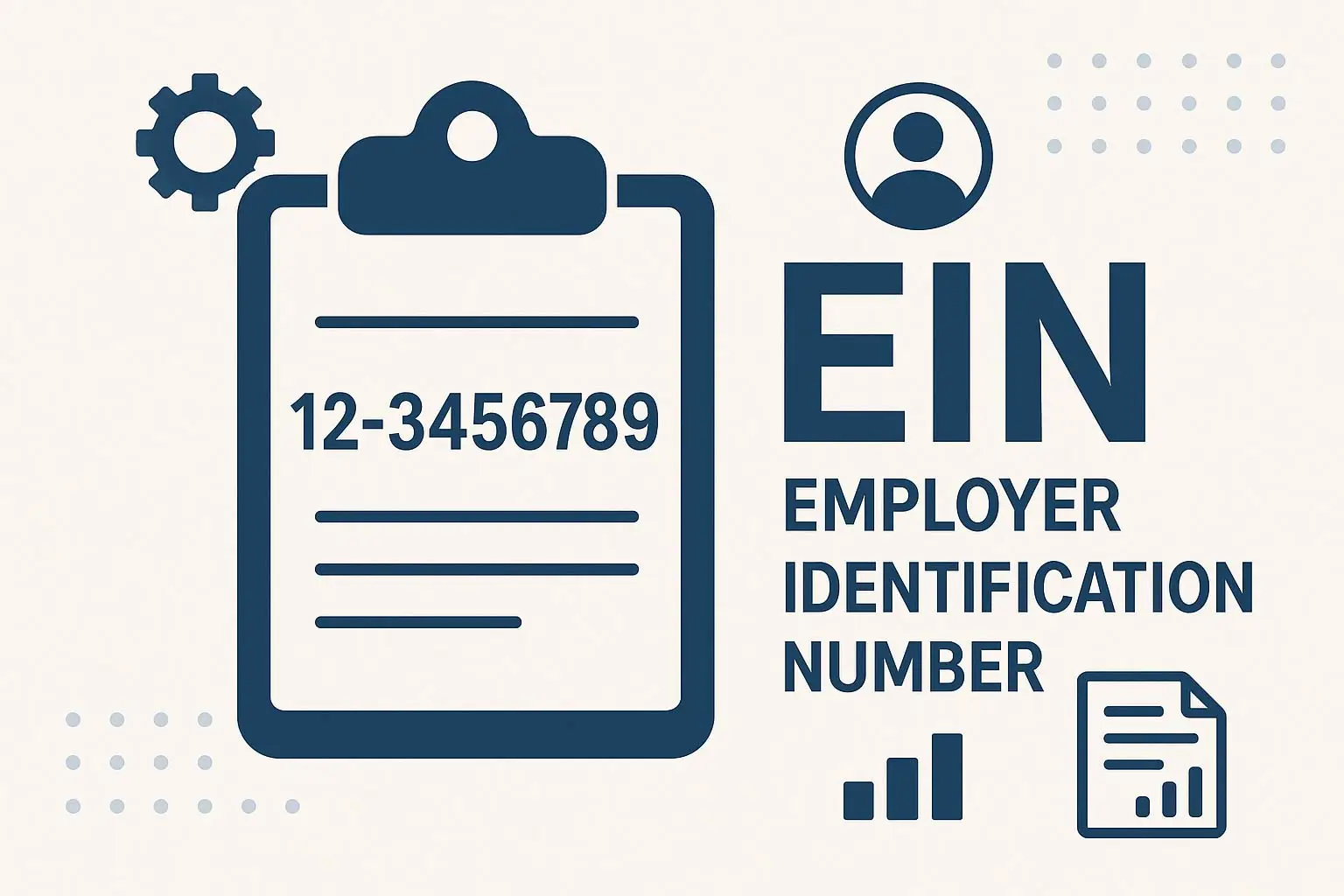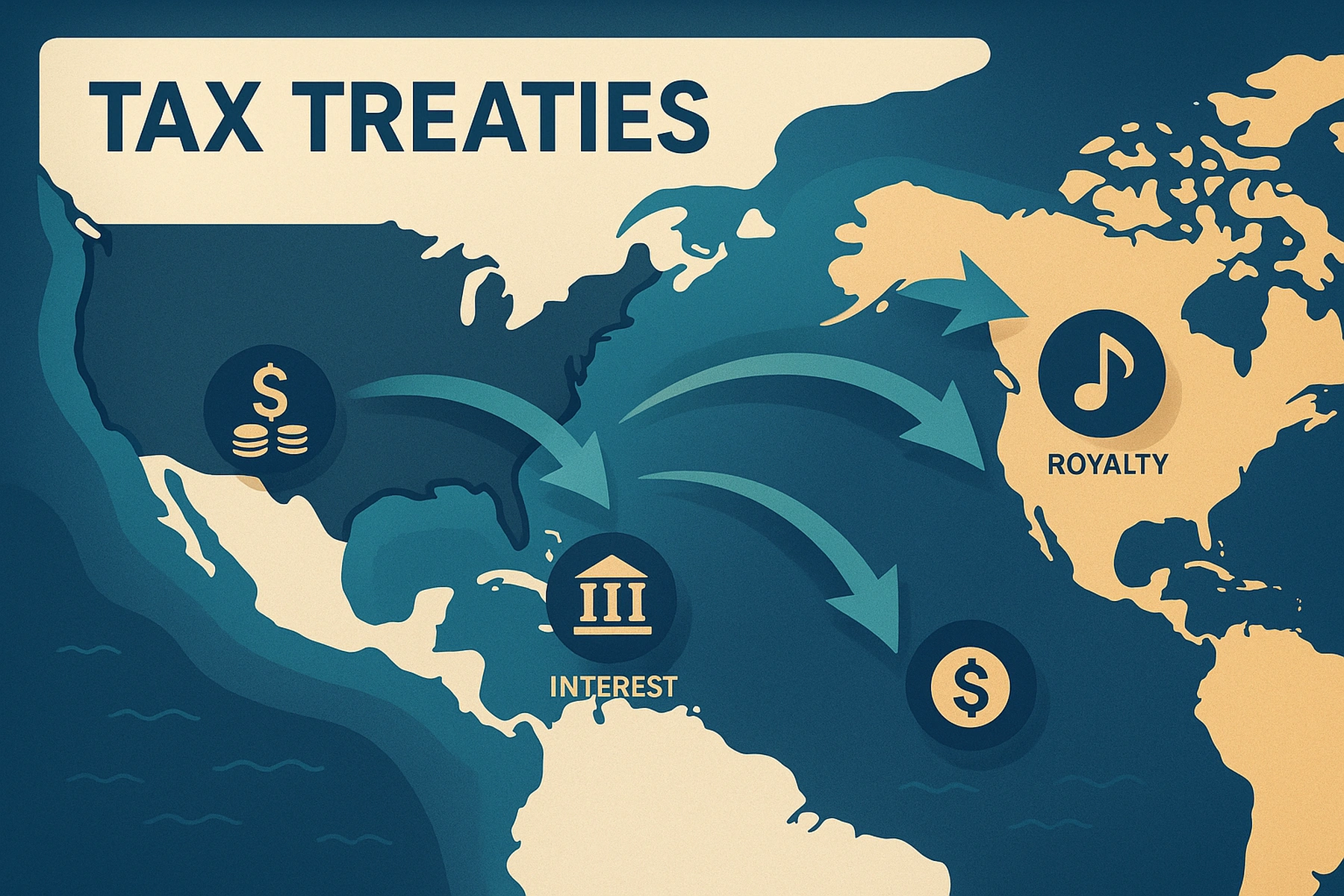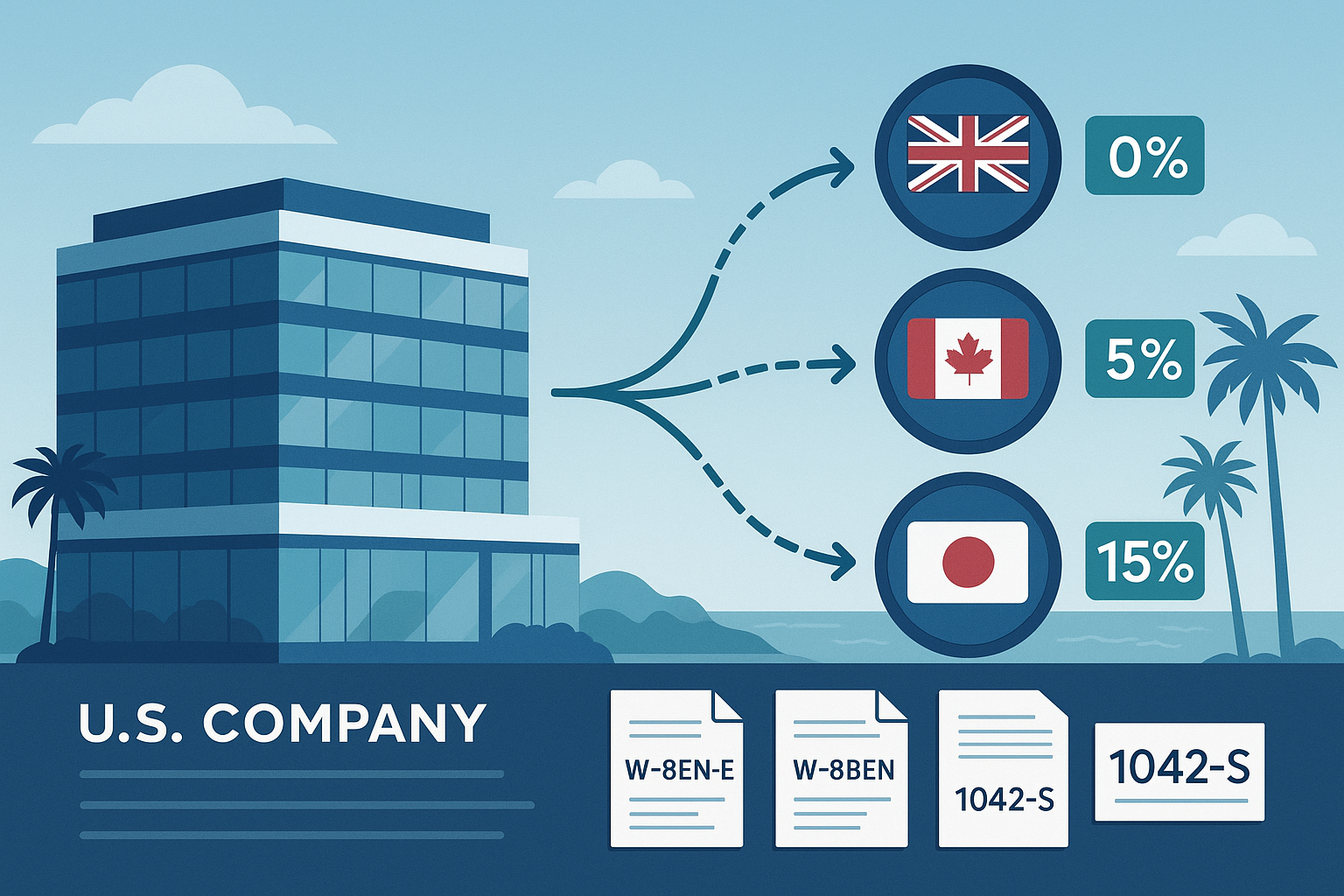
September 30, 2024
Understanding the Employer Identification Number (EIN)
An Employer Identification Number (EIN), or Federal Tax Identification Number, is a unique nine-digit number assigned by the Internal Revenue Service (IRS) to businesses and entities in the United States.
In California, obtaining an EIN is a crucial step for various business types, including corporations, partnerships, sole proprietorships, and non-profit organizations. This number plays a vital role in your business for tax purposes, allowing you to manage payroll, open business bank accounts, and apply for business licenses.
Purpose and Uses of an EIN
An EIN serves as a unique identifier for businesses, similar to how a Social Security Number (SSN) identifies individuals. Primarily, an EIN is essential for tax administration, allowing the IRS and other government agencies to track a business’s tax obligations. For Limited Liability Companies (LLCs), having an EIN is crucial for several operational and financial activities.
One of the primary uses of an EIN is to open a dedicated business bank account, which helps maintain a clear separation between personal and business finances. This separation is vital for liability protection and simplifying bookkeeping. Additionally, an EIN is required for filing federal, state, and local business tax returns, ensuring compliance with tax laws and regulations.
Moreover, an EIN is necessary for businesses that plan to hire employees, as it facilitates payroll processing and reporting to the IRS. Business owners may also need an EIN when applying for business licenses or permits, securing business loans, or obtaining lines of credit. Ultimately, an EIN is a foundational element for establishing a legitimate business identity while ensuring adherence to tax and regulatory requirements.
Tax Reporting
When operating an LLC, understanding your tax reporting obligations is necessary. If you are a single-member LLC, your business will be treated as a disregarded entity for federal tax purposes. This means you will report income and deductions on your tax return, using Schedule C for active businesses or Schedule E for real estate investments.
Conversely, if your LLC has multiple members, it will be classified as a partnership, requiring you to file Form 1065 and provide individual K-1 forms to each member. Ensuring accurate tax reporting helps maintain compliance and avoid potential penalties.
Opening Business Bank Accounts
To open a business bank account for your California LLC, you must obtain an EIN from the IRS. This EIN is your business’s tax identification and is essential for separating your personal and business finances. Once you have your EIN Confirmation Letter, you can approach your chosen bank to set up the account. While most banks require an EIN, some may allow you to open an account using just your personal Social Security Number. Be sure to check with your bank for specific requirements and bring any necessary documentation for a smooth application process.
Hiring Employees
Having an EIN is essential for businesses looking to hire employees. The EIN allows you to employ workers legally, set up payroll systems, and comply with employment tax requirements.
When you hire employees, the EIN enables you to withhold taxes, report earnings, and fulfill other federal and state obligations. Additionally, having an EIN is often necessary for workers’ compensation insurance and unemployment insurance. By obtaining an EIN, you ensure that your business adheres to legal standards while effectively managing your workforce.
Differences Between EIN and California Tax ID Number
While both an EIN and a California Tax ID Number serve as identifiers for businesses, they are fundamentally different in their purpose and issuance.
Federal Tax ID Number is a unique 9-digit number assigned by the IRS at the federal level. It is primarily used for tax purposes, such as filing federal taxes, opening business bank accounts, and managing employee payroll.
On the other hand, a California Tax ID Number is issued by the California Secretary of State’s Franchise Tax Board specifically for state-level business operations. This 12-digit number is required for any business entity operating within California, including LLCs, to comply with state tax regulations and pay the annual franchise tax.
Information Required for the Online Application
When applying for an EIN online, prepare specific information to ensure a smooth application process. First, identify your business entity type, such as a sole proprietorship, partnership, corporation, trust, or LLC. Next, gather the full legal name and taxpayer identification number (either your Social Security Number or Individual Taxpayer Identification Number) of the responsible party, who must be an individual, not an entity.
For Limited Liability Companies (LLCs), you should also note the number of members in your LLC. Additionally, provide the legal name of your business, as it appears on your formation documents, and the state where your articles of incorporation were filed.
Finally, include your business address, ensuring it is current and accurate. Having this information readily available will help you complete the online application within the allotted 15-minute time frame, preventing any unnecessary delays in obtaining your EIN.
Legal Structure of Your Business
Choosing the right legal structure for your business is important, as it impacts taxation, liability, and operational flexibility. Common options include Sole Proprietors, Corporations, Partnership, and Limited Liability Companies (LLCs).
Sole Proprietors provide pass-through taxation, but they do not offer limited liability protection. The business owner is personally liable for the business’s debts and obligations.
Under IRS regulations, sole proprietors are not obligated to obtain an Employer Identification Number (EIN). Instead, they can use their Social Security number as their taxpayer identification number. This provides flexibility for business owners in managing their tax identification requirements.
Corporations are complex entities that can issue stock and provide extensive liability protection.
Partnerships provide pass-through taxation but do not inherently offer limited liability protection. Limited liability protection is not available in a general partnership, where partners are personally liable for the debts and obligations of the business. However, in certain types of partnerships like Limited Liability Partnerships (LLPs) or Limited Partnerships (LPs) (for limited partners only), partners can have limited liability protection. So, whether a partnership offers limited liability protection depends on the type of partnership.
LLCs offer limited liability protection and can elect to be taxed as a sole proprietorship (for single-member LLCs), a partnership (for multi-member LLCs), or a corporation, making them a popular choice for many entrepreneurs.
Business Name and Location
Choosing a unique business name is crucial for establishing your brand identity. Ensure that the name reflects the essence of your business and is not already in use by another entity in your state.
Additionally, specify your LLC’s physical location, as this will determine your state’s regulations and tax requirements. Accurate information about both the name and location is vital when applying for your EIN and registering your LLC.
Details About Members or Responsible Parties
When applying for an EIN, it’s important to identify the responsible party – an individual who controls or manages the LLC. This person must provide their name and Taxpayer Identification Number (SSN or ITIN). In a multi-member LLC, all members may be listed, but only one must be designated as the primary responsible party for the application.
Application Methods for Obtaining an EIN
There are several methods to apply for an Employer Identification Number, with the online EIN application being the fastest and most efficient option. To apply online, ensure your principal business is located in the U.S. and you have a valid Taxpayer Identification Number (SSN, ITIN, or EIN).
Alternatively, you can apply via fax, mail, or phone, although these methods may take longer to process. Regardless of the method chosen, obtaining an EIN is free of charge.
Online Application Process
Applying for an EIN online is the fastest and most efficient method. Applicants complete the form in a single session, with immediate issuance of the EIN upon validation of the information provided.
Fax Submission
To apply for an EIN via fax, complete Form SS-4 and send it to the designated fax number. Ensure all required information is included. If eligible, the IRS will assign a new EIN and return it via fax within four business days.
Mail Application
To apply by mail, submit a completed Form SS-4 to the Internal Revenue Service. Expect processing to take approximately four weeks. Ensure all required information is included to avoid delays.
Telephone Application for International Applicants
International applicants seeking an EIN can call 267-941-1099, available Monday to Friday from 6 a.m. to 11 p.m. Eastern Time. The caller must be authorized to receive the EIN and must answer questions related to Form SS-4 during the call.
Mistakes to Avoid When Applying for an EIN
When applying for an EIN, it’s essential to avoid common mistakes.
Firstly, do not apply before your LLC is approved. It can lead to complications. Ensure you accurately determine the number of LLC members; transitioning between single-member and multi-member status requires additional paperwork.
Secondly, if designating an individual to apply on your behalf, remember to complete and retain Form SS-4. By steering clear of these mistakes, you can streamline the application process.
How can USiBTS help you make this process easy?
By working with a professional tax advisor like USiBTS, you can ensure a smooth and efficient EIN application process while receiving expert guidance on your overall tax strategy. Our knowledgeable Carlsbad team assists you in accurately completing Form SS-4, ensuring that all required information is provided, minimizing the risk of delays or rejections.
Additionally, we can clarify the different application methods and help you choose the best option based on your circumstances. With USiBTS by your side, you can navigate the EIN application confidently, saving you time and reducing stress.
Share this post :
Categories




